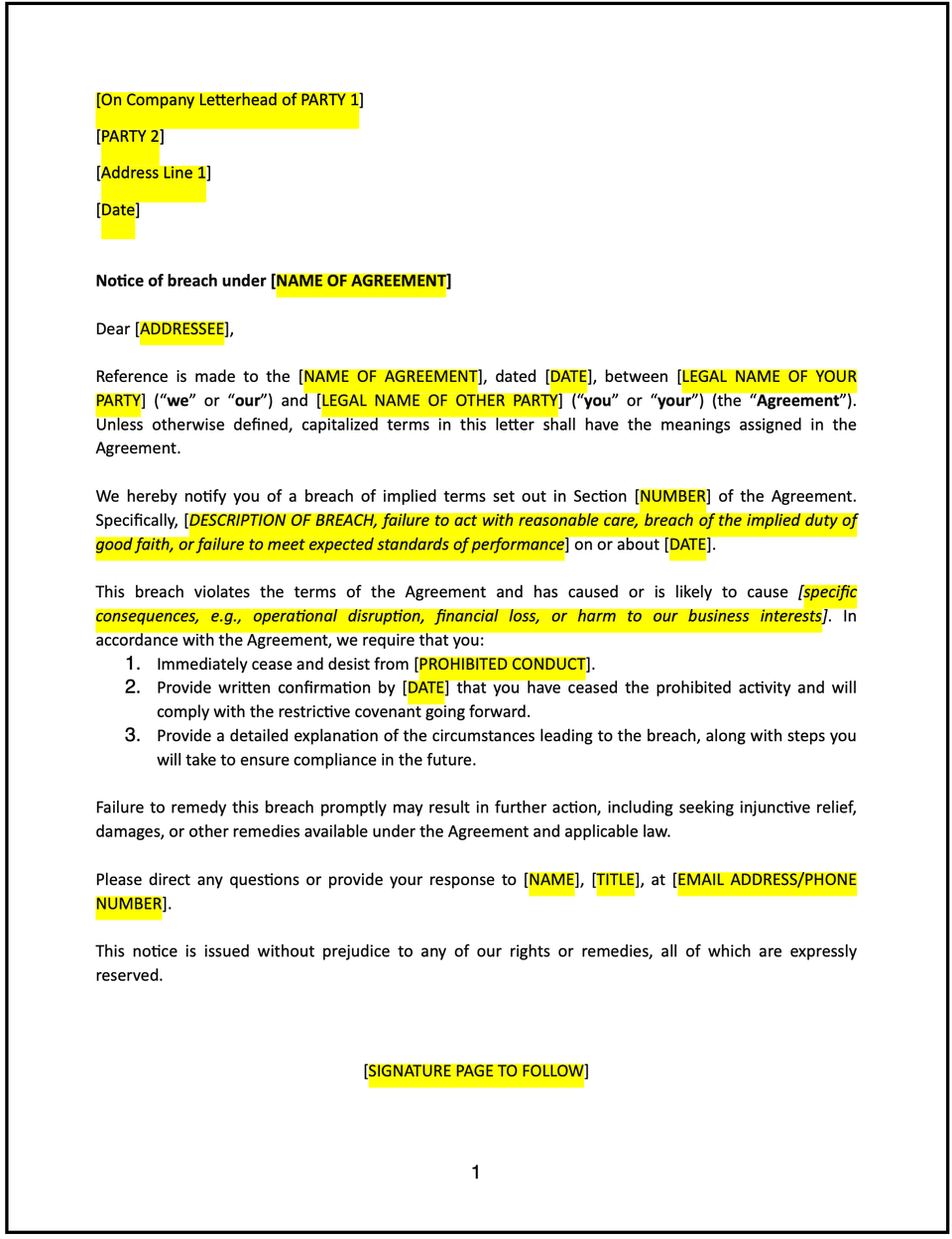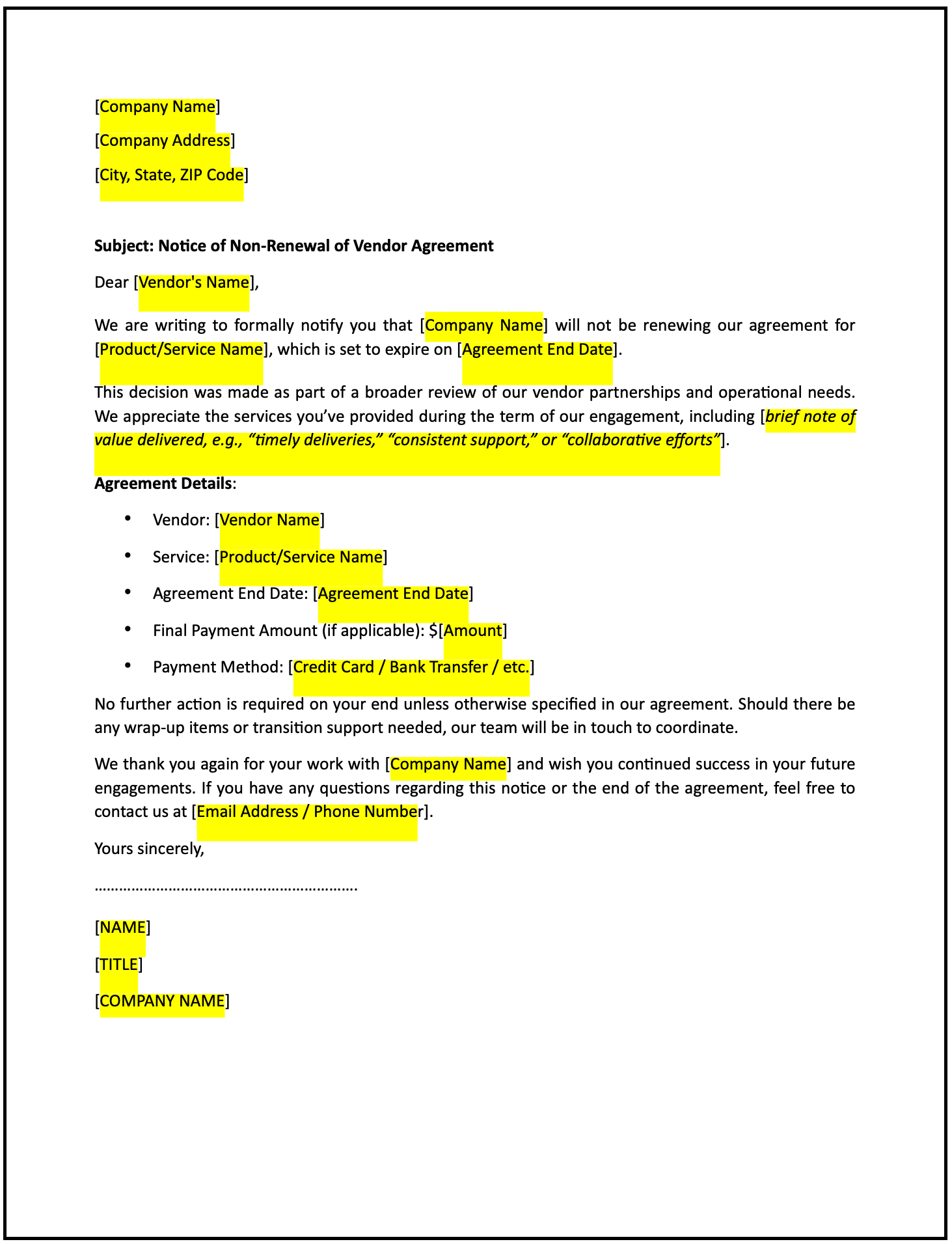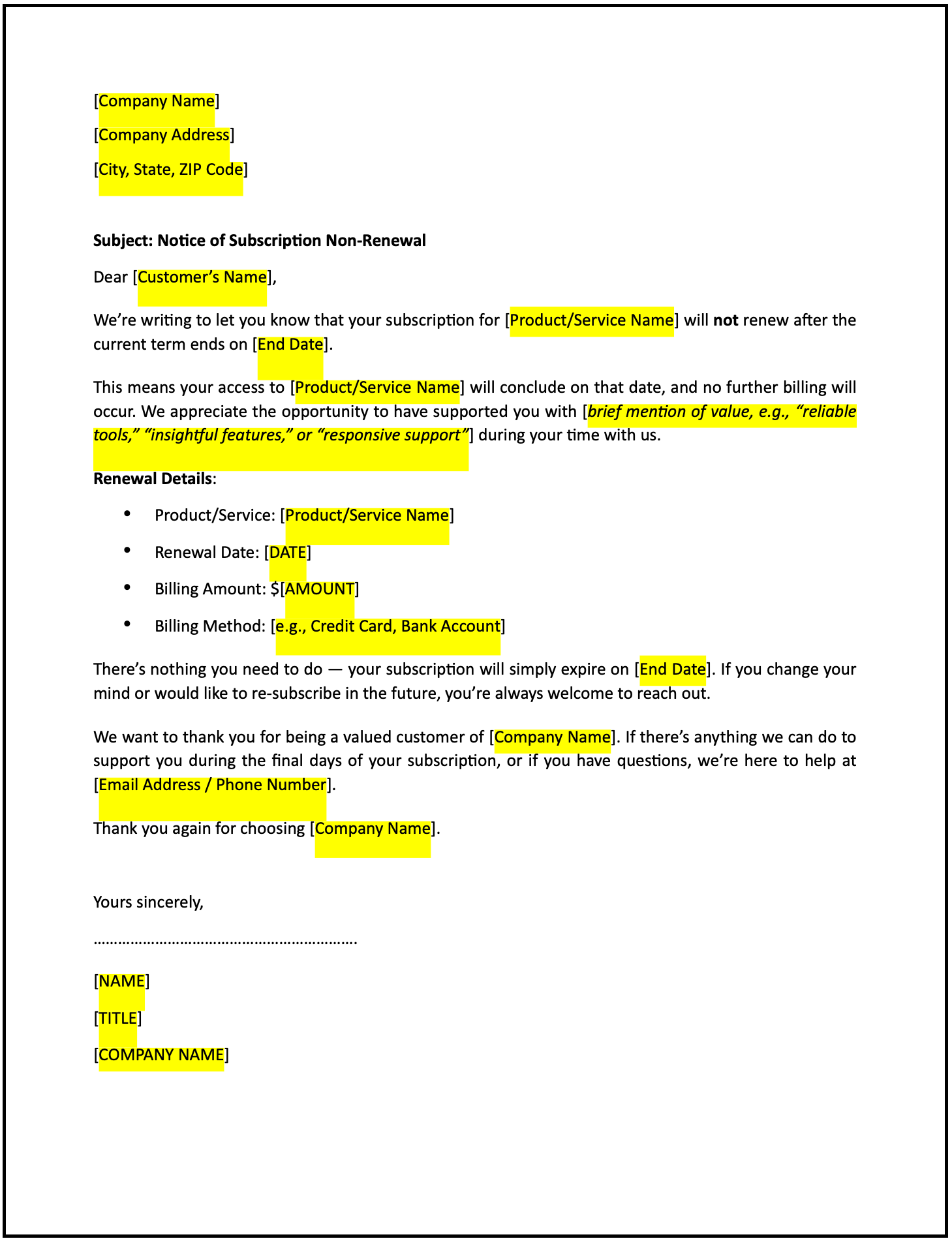Notification letter of breach of implied contract terms: Free template

Notification letter of breach of implied contract terms
A notification letter of breach of implied contract terms is a formal way to address violations of obligations that are not explicitly stated but are inherent to the agreement. This letter provides a structured approach to outline the breach, assert your rights, and seek resolution.
How to use this notification letter of breach of implied contract terms
- Open with context: Begin by referencing the relationship, agreement, or understanding under which the implied terms are established.
- Identify the breach: Clearly describe the actions or omissions that constitute the alleged breach of implied terms, such as failure to act in good faith or provide reasonable care.
- Provide evidence: Include supporting details or documentation, such as correspondence or behavior, that substantiate the breach.
- Assert your position: Emphasize the relevance of the implied terms to the agreement and their enforceability under applicable laws or precedents.
- Request corrective action: Specify the actions required to remedy the breach or address its impact.
- Highlight consequences: Mention potential steps you may take if the breach remains unresolved, such as terminating the agreement or seeking damages.
- Maintain a professional tone: Ensure the letter is clear, respectful, and focused on fostering resolution.
- Provide contact information: Include details for follow-up communication or clarification if necessary.
Benefits of using a notification letter of breach of implied contract terms
This letter template ensures a structured and professional way to address breaches of implied terms while fostering resolution and protecting your rights. Here’s how it helps:
- Protects your interests: Clearly addressing the breach demonstrates your commitment to upholding the terms of the agreement.
- Encourages compliance: Outlining the breach and its implications motivates the other party to take corrective action.
- Reflects professionalism: A well-crafted letter reinforces your credibility and seriousness.
- Reduces disputes: Clear communication minimizes misunderstandings and fosters constructive dialogue.
- Supports documentation: Creating a formal record of the breach is valuable for future reference or legal proceedings.
Tips for writing an effective notification letter of breach of implied contract terms
- Be specific: Clearly describe the implied terms, outline the breach, and provide supporting evidence.
- Use professional language: Maintain a respectful yet assertive tone to convey the seriousness of the matter.
- Highlight implications: Explain how the breach impacts the agreement or relationship to emphasize its importance.
- Request corrective action: Specify the actions required to resolve the issue and prevent further violations.
- Keep it concise: Focus on the key points without overwhelming the recipient with unnecessary details.
Frequently asked questions (FAQs)
Q: What details should I include in this letter?
A: Include references to the implied terms, the alleged breach, supporting evidence, requested corrective actions, and potential consequences.
Q: Should I personalize the letter?
A: Yes, addressing the recipient directly ensures clarity and demonstrates attentiveness.
Q: Who typically receives this letter?
A: Send the letter to the party responsible for the breach, such as a contractor, partner, or employee.
Q: How formal should this letter be?
A: The tone should be highly professional and assertive, focusing on clarity and resolution.
Q: When should this letter be sent?
A: Send the letter promptly after identifying the breach to demonstrate your commitment to addressing the issue.
Q: Can this letter include a final opportunity for resolution?
A: Yes, offering a final chance to resolve the issue before taking further action may foster goodwill and resolution.
Q: Is acknowledgment from the recipient required?
A: While not mandatory, requesting confirmation of receipt ensures the letter has been delivered and understood.
This article contains general legal information and does not contain legal advice. Cobrief is not a law firm or a substitute for an attorney or law firm. The law is complex and changes often. For legal advice, please ask a lawyer.


